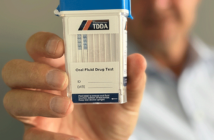The critical importance of following industry guidelines and adequately assessing hazards and risks in the workplace was highlighted after an employee of a large drainage contractor was run over by an excavator
Hydrotech Limited pleaded guilty to one charge under section 6 of the Health and Safety in Employment Act (1992) for failing to take all practicable steps to ensure the safety of its employees and was fined $48,875.00.
WorkSafe New Zealand’s investigation found that the company failed to carry out an adequate hazard and risk assessment for the task and did not identify appropriate control measures and communication systems, exclusion zones and a spotter.
Since the event the company has made some significant changes:
- the responsibility for filling in the on-site hazard register is now rotated through all staff, giving everyone a turn at identifying and mitigating risks on-site
- in-house training is run on a regular basis, ensuring their workers have continued education
- staff are expected to present projects on the hazards and the controls that they identified.
“The company is to be applauded for the positive changes, but it should not have taken a life-changing incident to spur the company to change,” says WorkSafe Chief Inspector Keith Stewart.
“Some very simple changes on the day would mean that the employee would have the full use of his legs today.
“Following industry guidelines would have removed the need for anyone to work close to the machine.”
Hydrotech Limited pleaded guilty to charges under s6 of the Health and Safety in Employment Act (1992) as the incident took place prior to the introduction of the Health and Safety at Work Act 2015.
The company had agreed to pay $50,000 in reparations to the victim at an earlier restorative justice hearing.
Hydrotech Limited also paid a further $3,500 as a debt clearance payment and paid 20 per cent of his pre-incident earnings to top up his ACC payments.
The company has also undertaken to retrain the victim to enable him back into full employment with the company.
Key points to note with regard to excavation safety include:
- avoid underground services and make sure not to undermine nearby structures – use safe digging practice and dig away from them
- check the excavation each day before starting work and after any event that may affect its stability
- provide safe access to get in and out
- prevent collapse – shore, bench, or batter back. Do not assume ground will stand unsupported.
- prevent people and materials falling in – with barriers strong enough not to collapse if someone falls against them.
Check out the WorkSafe guidance to excavator safety at http://construction.worksafe.govt.nz/guides/excavation-safety


